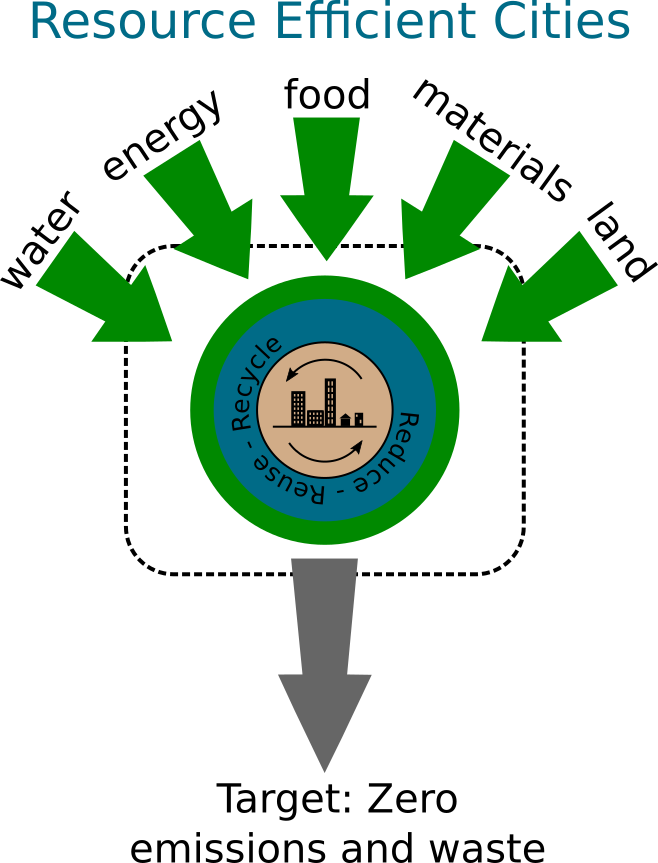Introduction¶
In order to understand the flow of resources occurring within a city-system we represent all the inputs and outputs from these city-system. For the computation of these inputs and outputs the library makes use of the urban metabolism approach.
The quantification of resources flow at an aggregate level is not enough for cities to take knowledge-based decisions on future infrastructure investment and policies targeting a sustainable urban development. In order to understand the impact of city level policies and investment strategies cities need to understand:
- The drivers of consumption and
- The plausible impact of these policies on their citizens.
In order to get this level of understanding we propose the simulation of consumption intensities at a micro-level. By describing the consumption intensities at this level of detail (and implicitly their consumption drivers) cities have a tool to assess the impact at this micro-level (e. g. at municipal or district level). The microsimulation module of this library constructs a micro-level synthetic sample with demographic-variables (drivers) and consumption values (benchmarked to aggregated values from the Urban Metabolism (UM) model).

This documentations aims to describe the main rationale behind the development of this python library and to present an overview of the main modules and functions implemented on the library.
The python library is composed of two main components:
- An Urban Metabolism section, see Top-Down: City-Systems (Urban Metabolism) that aims to balance all resource flows of city systems at an aggregated level (i.e. city-level) and;
- A Spatial Microsimulation section, see Bottom-Up: Synthetic Populations (Spatial Microsimulation). which constructs a synthetic city and allocates consumption values to micro-level agents
For a complete implementation example of the Spatial Microsimulation Urban Metabolism Model (SMUM), please refer to the following link: ipython notebook
This set documentations provides the documentation of the individual library modules and all the functions within these modules as well as some extended examples on how to use the provided functions.
The main library function documentation can be found at:
- API: Top-Down (Urban Metabolism) for the Urban Metabolism functions and at Top-Down: City-Systems (Urban Metabolism) for a general description of the UM module; and
- API: Bottom-Up (Spatial Microsimulation) for the Spatial Microsimulation functions and at Bottom-Up: Synthetic Populations (Spatial Microsimulation) for a general description of the SM module.
A complete list of examples can be found at:
A complete list of the library authors and contributors can be found at:
- Authors; and
- Contributing